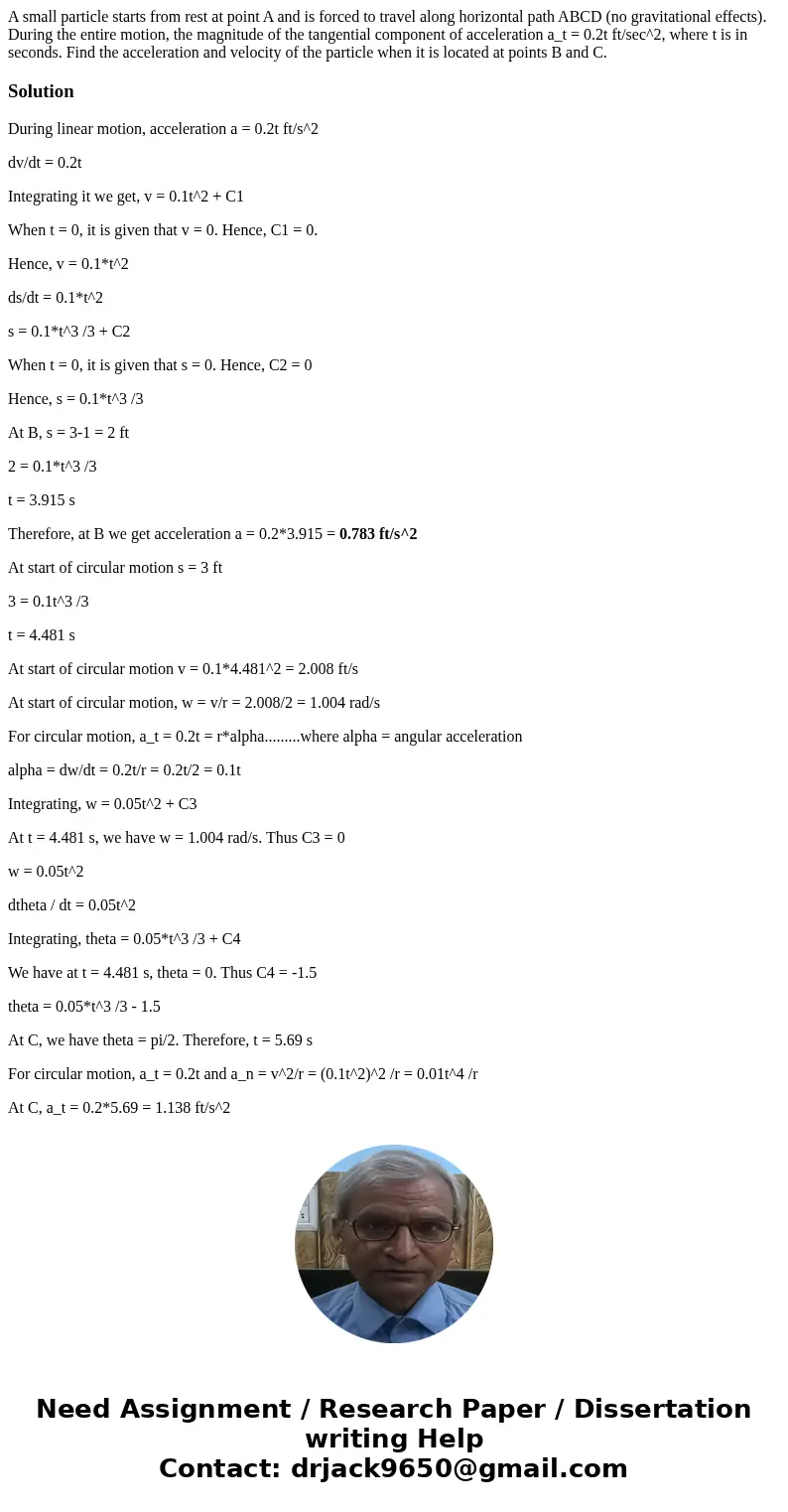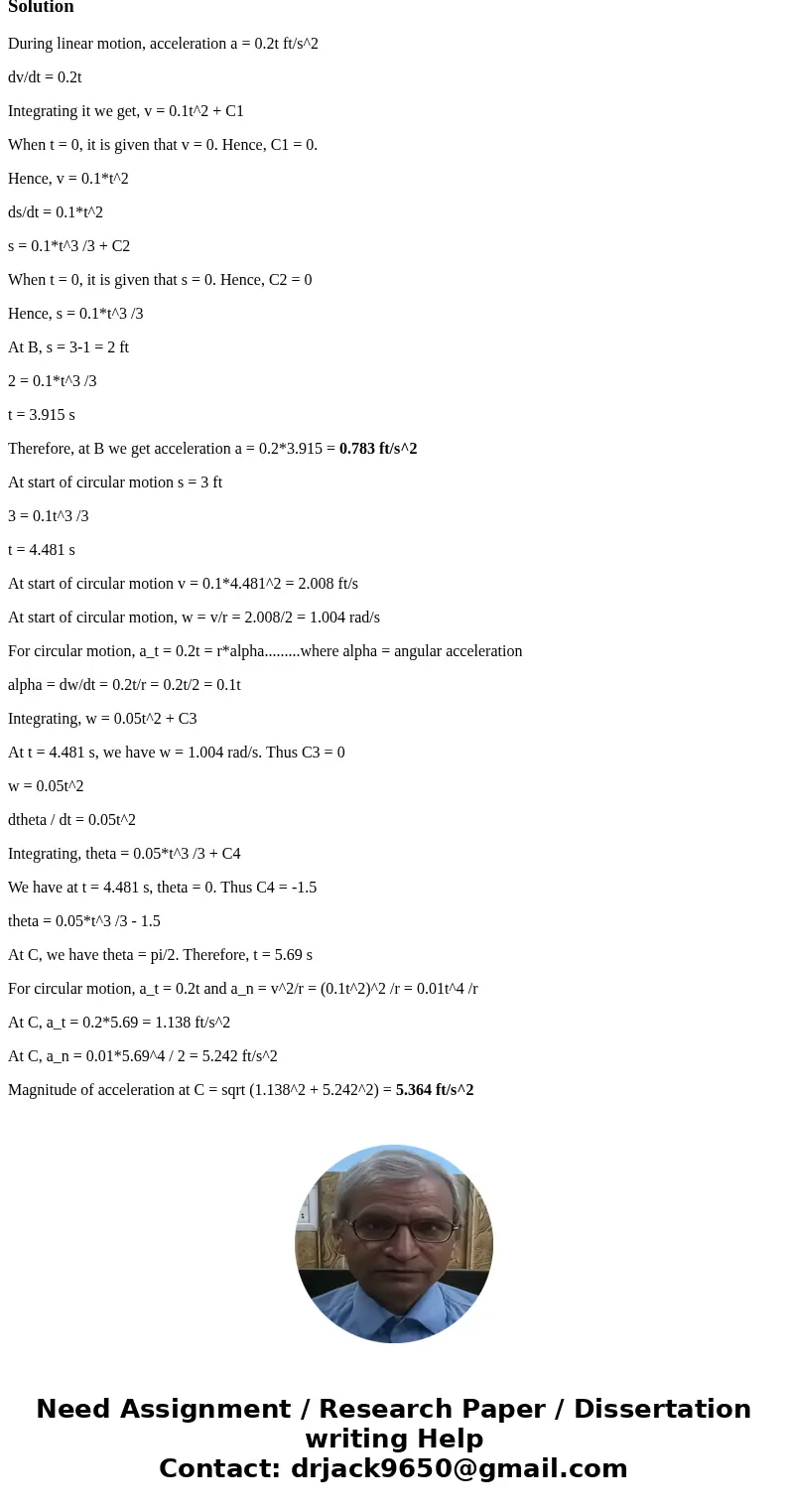A small particle starts from rest at point A and is forced t
Solution
During linear motion, acceleration a = 0.2t ft/s^2
dv/dt = 0.2t
Integrating it we get, v = 0.1t^2 + C1
When t = 0, it is given that v = 0. Hence, C1 = 0.
Hence, v = 0.1*t^2
ds/dt = 0.1*t^2
s = 0.1*t^3 /3 + C2
When t = 0, it is given that s = 0. Hence, C2 = 0
Hence, s = 0.1*t^3 /3
At B, s = 3-1 = 2 ft
2 = 0.1*t^3 /3
t = 3.915 s
Therefore, at B we get acceleration a = 0.2*3.915 = 0.783 ft/s^2
At start of circular motion s = 3 ft
3 = 0.1t^3 /3
t = 4.481 s
At start of circular motion v = 0.1*4.481^2 = 2.008 ft/s
At start of circular motion, w = v/r = 2.008/2 = 1.004 rad/s
For circular motion, a_t = 0.2t = r*alpha.........where alpha = angular acceleration
alpha = dw/dt = 0.2t/r = 0.2t/2 = 0.1t
Integrating, w = 0.05t^2 + C3
At t = 4.481 s, we have w = 1.004 rad/s. Thus C3 = 0
w = 0.05t^2
dtheta / dt = 0.05t^2
Integrating, theta = 0.05*t^3 /3 + C4
We have at t = 4.481 s, theta = 0. Thus C4 = -1.5
theta = 0.05*t^3 /3 - 1.5
At C, we have theta = pi/2. Therefore, t = 5.69 s
For circular motion, a_t = 0.2t and a_n = v^2/r = (0.1t^2)^2 /r = 0.01t^4 /r
At C, a_t = 0.2*5.69 = 1.138 ft/s^2
At C, a_n = 0.01*5.69^4 / 2 = 5.242 ft/s^2
Magnitude of acceleration at C = sqrt (1.138^2 + 5.242^2) = 5.364 ft/s^2


 Homework Sourse
Homework Sourse